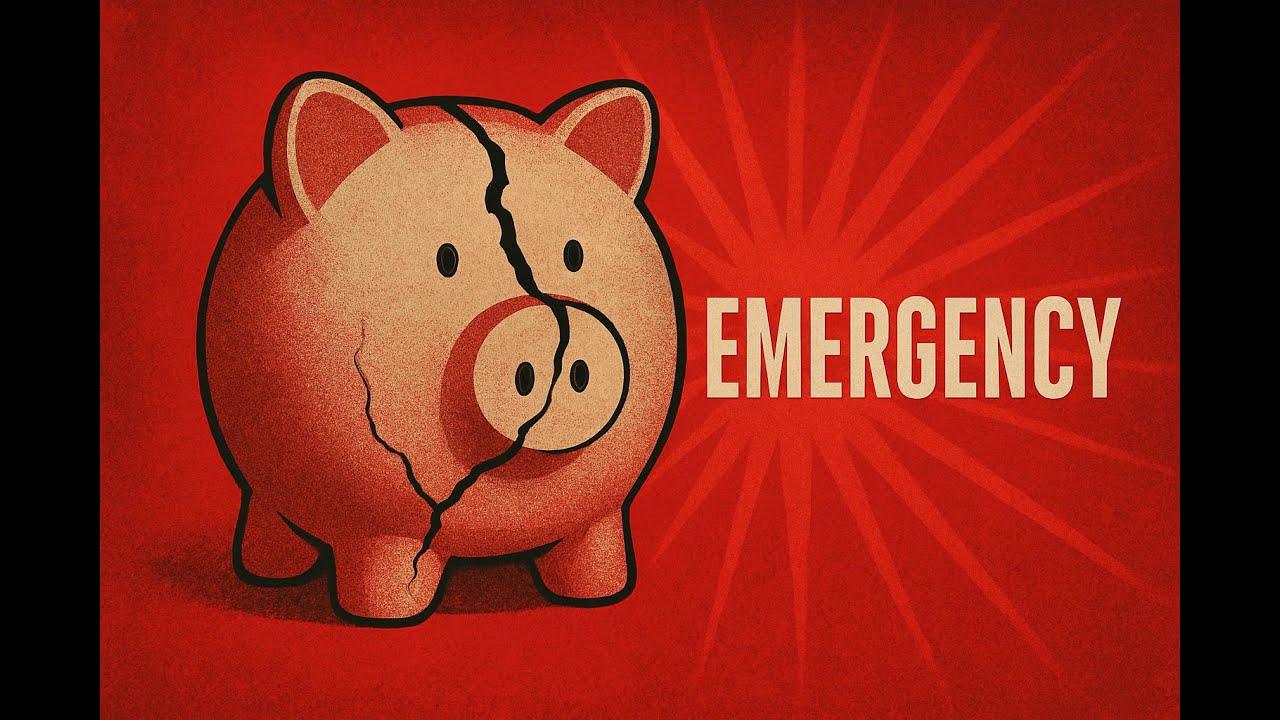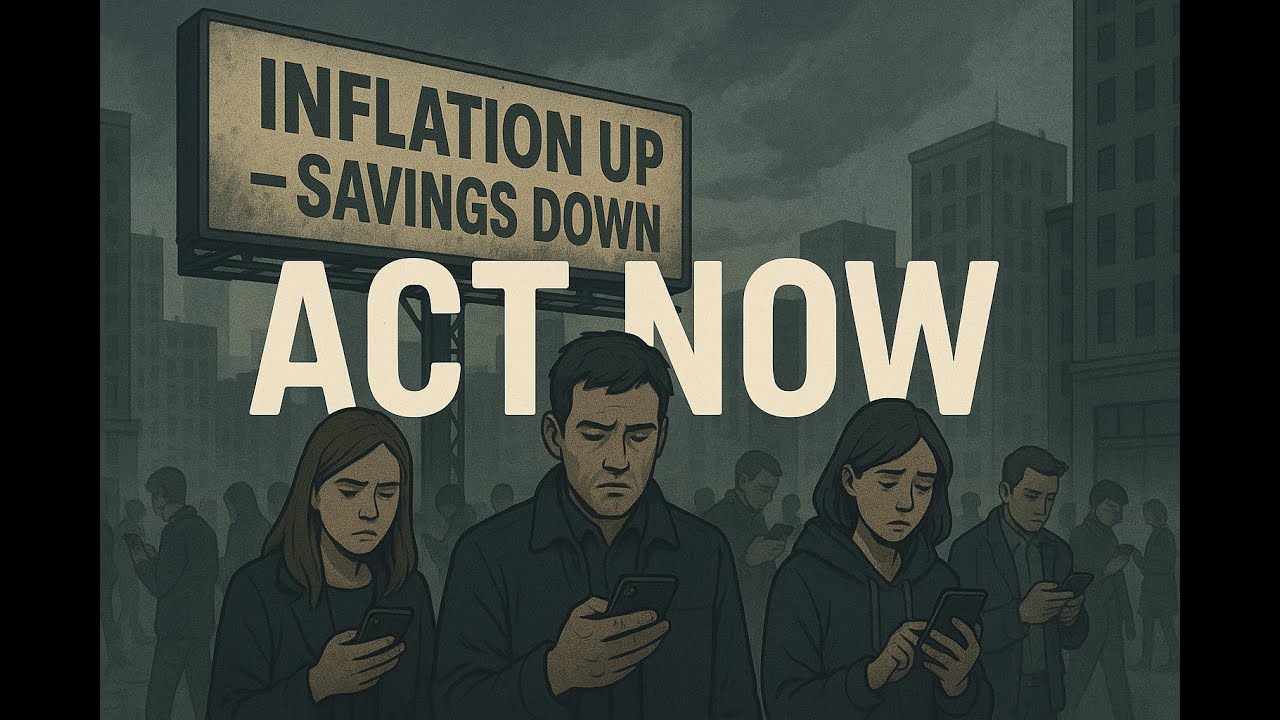Are You Committing Financial Suicide? Uncover the Hidden Emotions Draining Your Wealth
Discover how hidden emotions like anger and fear silently drain your wealth. Learn to identify triggers and break free from self-sabotaging financial habits.
Are You Committing Financial Suicide? Uncover the Hidden Emotions Draining Your Wealth
💡 Learn more: Check out our guide on The Power of Compound Interest: Why Your Future Shrinks Every Day You Delay for deeper insights.
Have you ever wondered why your money seems to vanish despite your best intentions? You might be unknowingly sabotaging your own financial future. In this article, inspired by insights from Start With Cents, we dive deep into the hidden psychological patterns that lead smart people to make seemingly irrational money decisions. These aren’t character flaws; rather, they are predictable emotional responses that quietly sabotage your finances. By understanding these emotions and learning how to catch yourself before spending, you can stop the cycle and start building real wealth.
Table of Contents
🔥 The Hidden Power of Anger: How It Costs You Money
Most people believe their spending is logical, but often, a hidden emotion drives their worst financial decisions: anger. Not the obvious, explosive kind, but a quiet anger that nests deep in your chest. This anger accumulates from everyday disappointments and betrayals—like your boss taking credit for your work, feeling unappreciated by your partner, or being treated like a child by your parents. These feelings don’t just vanish when you clock out or hang up the phone.
Think of anger as energy that needs an outlet. When you can’t express it directly, it leaks out in other ways—often through your wallet. You might spend impulsively to feel better, to prove something, or even to get back at the world in a small way.

Research shows about 70% of Americans report impulse or emotional spending, with anger as one of the biggest triggers. This looks like buying a handful of impulse items after a rough day to regain a fleeting sense of control. Or, if you grew up with parents who were strict and scrutinized every penny, you might rebel by overspending now that you have freedom. In reality, you’re not just buying things—you’re buying from the voice of those old restrictions echoing in your head.
Suppressing emotions like anger creates predictable patterns. When you can’t face your feelings head-on, money becomes the battlefield for fights that have nothing to do with money. You might think you’re treating yourself, but in truth, you’re punishing yourself financially.
“You spend money to feel better. The temporary relief feels good, so your brain remembers the solution. Next time you feel that way, you reach for your wallet again.” – Start With Cents
This cycle traps many people, making it hard to break because they’re battling the wrong enemy. Emotional spending does provide a momentary feeling of power and control—you walk into a store feeling small and walk out feeling important. But this “borrowed power” comes with interest. Over time, it creates dependency, draining the very funds you could use to build true independence.

How to Break the Anger-Spending Cycle
Recognizing anger as the root of impulse spending is only half the battle. To turn this insight into financial strength:
-
Identify your hidden anger triggers.
-
Before spending, pause and ask: “Am I buying this because I need it or because I’m trying to feel better about something else?”
This simple question can save you thousands by interrupting the emotional spending pattern.
😨 The Fear of Success: The Silent Saboteur of Your Wealth
There’s another emotion even more dangerous than anger: fear. Specifically, fear of financial success. This fear often strikes just when you’re making real progress toward your goals—when you get a raise, save money, or find new opportunities. Instead of celebrating, you might find yourself sabotaging your progress.
You might spend the money you’ve saved, avoid investment opportunities, or make excuses to stay exactly where you are. This isn’t laziness or a lack of willpower; it’s your brain protecting you from what it perceives as danger. Researchers call this phenomenon the “income ceiling.” It’s an unconscious cap on your wealth at a level that feels familiar and safe.

Imagine climbing a ladder and knocking yourself down a few rungs each time you near the top. You don’t do this on purpose, but your subconscious mind invents logical-sounding reasons to hold you back. For example:
-
You get a $200 raise but spend it instead of saving or investing it.
-
You upgrade your car or rent a more expensive apartment, erasing the progress you made.
-
You avoid learning about investing because it feels complicated or intimidating.

Deep down, you may hold limiting beliefs about money and success without even realizing it. Maybe you think rich people are greedy, worry that wealth will change your relationships, or feel undeserving of success. These beliefs enforce the income ceiling, keeping you stuck in a comfort zone that feels secure but isn’t truly comfortable.
Your brain makes these self-sabotaging actions feel logical—you tell yourself you’re being practical or responsible. But underneath it all, you’re scared of the responsibility, the changes, and even the potential isolation that financial success might bring.
Ironically, this fear harms you more than financial success ever could. Financial stress from scarcity damages relationships more than wealth does. Yet, many stay poor to maintain connections or avoid feeling different.
Breaking Free from the Fear of Success
To overcome this fear:
-
Pause and ask yourself: “What’s really holding me back from saying hell yes to success?”
-
Recognize that your financial struggles may stem from fear of success rather than inability to succeed.
-
Challenge limiting beliefs about money and your worthiness.
Understanding this pattern is the first step. The real change comes when you take deliberate action to confront and move beyond these fears.
🛠️ Your 3-Part Action Plan to Stop Financial Self-Sabotage
Now that you know the hidden emotions draining your finances, here’s a simple, actionable plan to regain control and build real wealth:
-
Track your emotions: For one week, note how you feel before every spending decision.
-
Pause before spending: For any purchase over $20, stop and ask yourself, “Am I buying this because I need it or because I’m trying to feel better about something else?”
-
Redirect emotional energy: Instead of spending, channel that energy into a quick saving habit or a mini investment.
Remember, you’re not broken or bad with money. You’re human. By becoming aware of your emotional triggers and learning to manage them, you can make your emotions work for your financial future instead of against it.

Frequently Asked Questions 🤔
What is financial self-sabotage?
Financial self-sabotage refers to unconscious behaviors or emotional patterns that undermine your ability to build wealth and manage money effectively. It often stems from unacknowledged emotions like anger or fear.
How does anger lead to poor money decisions?
Quiet, suppressed anger can cause impulse spending as a way to cope or regain control. This emotional spending feels good temporarily but can drain your finances and trap you in a harmful cycle.
What is the “income ceiling”?
The income ceiling is a subconscious limit people place on their earnings and wealth. When approaching higher financial success, fear triggers behaviors that keep them at a familiar, comfortable financial level.
How can I break the cycle of financial self-sabotage?
Start by tracking your emotions related to spending, pausing before purchases, and redirecting emotional impulses into saving or investing. Honest self-reflection and challenging limiting beliefs about money are key.
Is emotional spending a sign of lack of willpower?
No. Emotional spending is often a predictable response to unacknowledged feelings like anger or fear, not a failure of discipline or willpower.
If you’ve recognized yourself in these patterns, remember: awareness is the first step toward change. Use these insights and the action plan to reclaim your financial future and stop committing financial suicide.
Subscribing really helps.
Subscribe to help me create more helpful videos for everyone's benefit.
** Subscribe to @StartWithCents **
🚀 Ready to Build Real Wealth?
You've learned the strategy – now it's time for action!
🎬 Get Weekly Financial Education
Join thousands learning smart money strategies that actually work.
📺 Subscribe to @StartWithCents
💎 Download Your Free Wealth-Building Tools
Get the exclusive "First Dollar Game Plan" – your step-by-step guide to financial freedom.
📚 Continue Your Financial Journey
Explore more money-smart articles and strategies.
📖 Read More Posts • 🏠 Homepage
💡 Remember: Knowledge without action is just entertainment. Take one step today!

